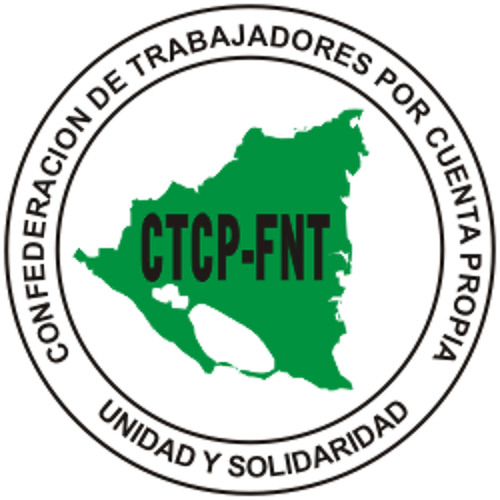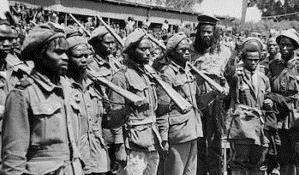Nicaragua: A social solidarity economy in living practice
Background
In our global neo-liberal capitalist world, not much is known about low-profile alternative socialist practices which are making a difference to the lives of ordinary people in small corners of the world. In what can be best described as anomalies in the overall neo-liberal economy, there exist pockets of what is known in countries such as Brazil and Argentina as the Solidarity Economy. This is where members of the working poor provide goods and services for the benefit of their communities rather than for profits, according to rules which are not governed by capitalism. In Nicaragua, what is known as the Social Solidarity Economy is more than an anomaly in the economy – it has been institutionalised into a national system. A key actor in this process has been the trade union confederation of own-account (self-employed) workers CTCP (Confederación de Trabajadores por Cuenta Propia).
CTCP developed from an association of traffic-light vendors into a confederation of federations and unions of different sectors of own-account workers. Established in 2005, CTCP “brings together people who work in the streets selling all kinds of cheap goods and services. They produce food such as tortillas, soft drinks and traditional sweets. Some are the owners of small and micro-businesses, while others have workshops for mechanics, carpentry and tyre repairs. Others work as cambistas (money-changers), artisans, tailors, seamstresses, barbers, grocers, porters with handcarts, litter pickers and hawkers, taxi drivers, rickshaw tri-cyclists, lottery sellers and mobile phone sellers. Some work in people’s homes as plumbers, labourers or electricians; others are professional people and craft workers1”. CTCP’s approach is based on its analysis of the political macro-economy within which it operates as a representative organisation of own-account workers — documented in the First Self-Employed Workers’ Manifesto of the CTCP-FNT authored by Dr Orlando Núñez Soto. In the section of the manifesto entitled “The construction and consolidation of a social economy: programme, strategy and tasks” it describes “the birth of what today has become a self-employed proletariat which now seeks a place in anti-establishment theory and practice, rather than merely being counted as poor or as an electoral mass when an election year comes around”.
It goes on to argue for the importance of organising this self-employed proletariat into “a social movement which aims to improve the correlation of forces in their country of residence, struggling to improve their standard of living, not only in terms of their own income, but also by gaining access to national surpluses — specifically to the nation’s budget, as they are the group that proportionally pays the highest taxes. This is so because in their countries indirect taxes are far higher than direct ones, a burden that must be carried by the vast majority of the population, among them the self-employed proletariat. But most important is the objective of advancing towards the individual and associative control of production, transport, local and international trade, distribution and consumption.” Own-account workers were mobilised to join CTCP as part of this strategy, which is consciously differentiated from the way in which CTCP perceives mainstream development strategies which objectify the poor as being in need of social aid instead of recognising them as impoverished “worker-producers” capable of being the agents of social transformation.
For the CTCP, the objective is to move from a trade association to the next level. “Once organised by trade association it is necessary to rise to the political level to become a large social and national movement and to exert pressure on public institutions and State social and economic policies”. The CTCP has been largely successful in achieving this. It have succeeded not only in substantially influencing government policies in relation to own-account workers, but also in calling in the commitment of the FSLN (the Sandinista National Liberation Front, the ruling party) to the restitution of rights to those who have been impoverished by neo-liberal economic policies. Affiliated to FNT7 (Frente Nacional de los Trabajadores), one of many Nicaraguan trade union confederations, CTCP has 58 186 members in 156 unions and eight federations, with a women’s committee and a youth committee. A serious development of mainstream women’s leadership has occurred in CTCP since my first visits to Nicaragua in 2009 and 2012. CTCP now has key women leaders (not confined to the women’s committee only). The deputy general secretary and president of the youth committee are, for instance, women.
About 65% of their members are between the ages of 16 and 36. There is a high level of poverty in Nicaragua, though social and economic inequality has decreased in recent years, and life expectancy has increased to 74,5 years. Nicaragua has a population of about 6,5-million people, of whom some two million are own-account workers. About 80% of food is produced locally by cuentapropistas (own-account workers). Despite their central importance in the economy, from 1990-2007 own-account workers were excluded from public policies.
Half of CTCP’s membership is estimated to be in the Nicaraguan capital, Managua. The other 50% is in the following regions: Matagalpa, Jinotega, Chinandega, Boaco, Carazo, Chontales, Condega, Esteli, Granada, León, Masaya, Matriz, Nueva Segovia, Río San Juan, Rivas (bordering Costa Rica). The regions where CTCP has not yet managed to organise members are Bluefields and the Coastal Caribbean (Zelaya region) – the distance to these areas from Managua requires substantial resources to travel to organise. In the region of Rivas, which borders Costa Rica to the south, there is a Programa de Integración Fronteriza (Programme of Frontier Integration) for construction of indigenous markets (tiangues) with provision of capacitation, technical assistance and credit for cross-border own-account workers.
CTCP has a strategic work-plan for 2015-2020. The organisation’s development objective is to reduce the factors that prevent people from coming out of their precarious situation. CTCP says this is possible because the government has placed people at the centre of development, with poverty reduction as the main objective and with own-account workers the priority. Specific objectives are the involvement of the sector in the plans, programmes and projects which promote the “Christian, socialist and solidarity” government of Nicaragua; and socio-economic development to stabilise the lives of own-account workers, in line with government’s human development plan. For the protection of its members, CTCP relies primarily on a government decree of 1 June 2009 prohibiting the eviction of street vendors and informal traders from their places of work. The decree reminds municipalities of their obligation to facilitate all forms of work which provide food security and the dignity of a fixed income, without creating legal obstacles or modernisation processes which continue to replicate the extreme poverty created by neo-liberalism in Nicaragua. The Nicaraguan government has established a “Dialogue, Negotiation and Consensus” model to promote tripartite agreements between the state, private enterprise and workers. This has helped consolidate macroeconomic stability and improved governance in the country. When there is a development project that impacts on own-account workers, inter-institutional commissions are activated, such as the National Commission for Customs Integration, the National Transportation Commission, the National Commission for Education, the National Commission for Youth Employment and the Commission on a National Minimum Wage.
As a result of the CTCP’s work on the ground, there is now much greater government recognition of the central role played by the own-account sector in Nicaragua. The sector generates between 60% and 75% of all jobs, and it around 50% of the Gross Domestic Product (GDP). Moreover, the sector re-distributes economic surplus more equitably than the so-called “mainstream” capitalist economy.
FNT, to which CTCP is affiliated, was established in1990. For FNT and CTCP, building on the proclaimed “Christian, Socialist, Solidarity” values of Nicaragua, the practice of associativity is the key to encouraging people to work together. For an economy of small producers to be able to compete in a capitalist-dominated open economy, they have to be able to produce a better quality than they could do individually – hence their focus on the Social Solidarity Economy, as developed in the “Self-Employed Workers’ Manifesto of the CTCP-FNT”. From 1997 the FNT entered into a new phase in its relationship with the ruling FSLN, forming an alliance with mutual recognition. In 1999 a single platform was launched by the FSLN and FNT, and a joint municipal strategy was designed.
Relationship with local government in Managua
There are seven districts in the capital city of Managua, each with a mayor (Delegado) appointed by the party in control of the district municipality. Not all the municipalities are Sandinista- controlled, but they are all governed by a National Development Plan coordinated at municipal level, financed by means of national transfers to local government, as a key part of nation-building. Communication and social dialogue is central to the approach, and relies on a consistent high level of political will to respect the rights of own-account workers.
Eric Canale, Delegado of District 3, Managua has been working with CTCP for five years in the Central Managua and UCA (Universidad CentroAmericana) area, collaborating on the orderly management of space. District 3 is part of the Municipality of Managua, as the Delegado Canale has the political authority to direct the work of municipal officials assigned to that district. Currently, stationary vendors in fixed workplaces pay taxes to the municipality, mobile vendors are exempt from paying direct taxes, but all pay indirect taxes. According to Canale, the strategy that has been followed is to restore rights and to dignify work by providing them with fixed workplaces. Because of the 2009 decree, there is no question of simply evicting them. The municipality relies on their credibility with CTCP. The main problems for the municipality arise when they have to deal with informal traders who are not members of CTCP (the most rep- resentative, and only known, organisation of informal traders). They have to continue to negotiate and engage in dialogue to find mutually acceptable solutions, even though the negotiations are unstructured (i.e. there were no terms of reference or signed agreements at the time of writing this report).
Responsibility for building kiosks for vendors is shared, and there is a tripartite arrangement that includes the private sector that owns the malls. There is a national commission for regulation of the transport sector, and CTCP participates directly in this commission. There is also an ongoing discussion with the finance ministry about undertaking the task of institutionalising own-account workers as a sector of the economy. Through the Central Bank, statistics have been collected about the contribution of own-account workers to the economy. In 2015 their contribution was found to be around 50%.
Speaking to members of CTCP, it is difficult to discern any evidence of the tensions, contradictions and dislocations between the national and local levels of government that so commonly prevent smooth management of street trading in other countries. It has to be interrogated whether this can be attributed to a genuinely higher level of political will, as claimed by CTCP and the Delegado of District 3 of Managua — and if so what would make Nicaragua so different from other countries in this respect.
Could a higher level of genuine political will in practice be attributed to Nicaragua being a “home-grown” socialist country, eschewing neo-liberalism and consciously evolving and practising a bottom-up form of democratic socialism? The difference between traditional socialism and the current-day Sandinista socialism is explained in the CTCP Manifesto as “the goal is not that all means of production become property of the State, as happened in the State socialism of the past century, as these too would have to be expropriated.
It is desirable that strategic companies be public, at national or municipal level, and furthermore be under some degree of democratic control of society as a whole. The point is to move forward in order to progressively incarnate the old idea that power should rest in the councils, from the economic, political and cultural points of view: councils of workers, women, soldiers and small farmers, employees in any of the services, consumer groups and other like-minded associations among the population at large. No one is excluded from setting up the organisation he/she wishes to in order to advocate for collective and common interests for themselves and the remainder of society.”
Trade union context
When we met representatives of the FNT (Frente Nacional de Trabajo), Secretary General Dr Gustavo Porras, National Executive Secretary Lic Jose Angel Bermudez and Jose Antonio Zepeda and Maritza Espinales10, we discussed the motivation for the Sandinista-led Government of Reconciliation and National Unity to call the country a “Christian, Socialist, Solidarity” Nicaragua. The motivation for calling it socialist was clear – promoting new forms of production and distribution, and the restitution of rights. The reference to Christianity, I was told, was not intended to mean a religious preference, but rather to affirm human values. The National Development Plan is centred on humanity and human beings – and the concept of dialogue has been key to creating the political and economic stability that currently exists in Nicaragua. There have been successes in health through a community health approach, and there is public free education up to tertiary level. An approach of equal opportunity and women’s empowerment has been introduced in each social and economic sector. The revolution is being consolidated by the wide-spread practice of decision- making at popular level. The FSLN learnt a lesson after losing elections in the 1970s — it had to become more intelligent in recognising what the people want.
This is what led to own-account workers being taken into account. Notwithstanding the fact that Nicaragua is a socialist country, it has to survive within the reality of a global economy. Investors need stability, space to operate, and certainty about the situation they invest in. The Nicaraguan government has been increasing social security by 8% per year. The State cannot provide major employment, but has to facilitate a favourable environment for people to be able to work. The Nica- raguan government has recognised the importance of family work in Nicaragua, and established a Ministry of Family Economy and Cooperatives (in addition to the Ministry of Public Finances and the Ministry of Commerce and Industry). This Ministry was formed by consolidating two previous bodies (the IMPIME institute of SMEs and the Ministry of Rural Development) into one new Ministry.
FNT confirmed that the CTCP developed after the initial establishment of the FNT, not by design but out of necessity. National police, who were Sandinistas, had to make peace with the vendedores semoforos (traffic-light vendors) and recognise their situation from a basic foundation of humanity. This is where it started. Since between 60% and 70% of the workforce consists of own-account workers, it became clear that they had to be organised as workers. The aim of the National Development Plan is to end poverty by 2030. Self-reliance and improvement in the livelihoods of own-account workers is clearly integral to achieving this.
Other alliances and working relationships
CTCP has sought collaborating partners who share their vision of transforming the system, rather than project-based collaborations limited to selected groups of beneficiaries, which is often promoted by development partners.
At international level, this was what led to CTCP seeking affiliation with StreetNet International, as a space for developing international solidarity with own-account workers world-wide. At regional level, CTCP took on the role of coordinating the Red SEICAP (Red de Sindicatos de la Economía Informal de Centroamérica y Panamá) of workers of the Social Solidarity Economy of America.
Internationally, CTCP is affiliated to WFTU (World Federation of Trade Unions) while FNT is affiliated to ITUC (International Trade Union Confederation). This article was written in collaboration with CTCP in Nicaragua.
About the author
The author, Comrade Horn, is co-ordinator of StreetNet International, an alliance of street vendors launched in Durban in November 2002. Membership-based organisations (unions, co- operatives or associations) directly organising street vendors, market vendors and/or hawkers among their members, are entitled to affiliate to StreetNet International. The aim of StreetNet is to promote the exchange of information and ideas on critical issues facing street vendors, market vendors and hawkers (i.e. mobile vendors) and on practical organising and advocacy strategies. He is a member of the SACP.




